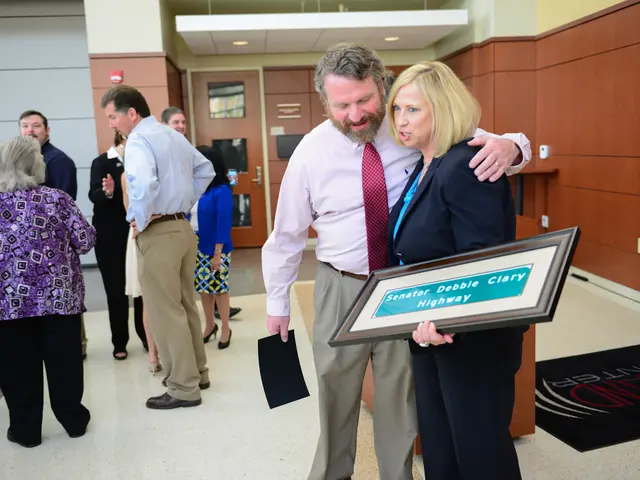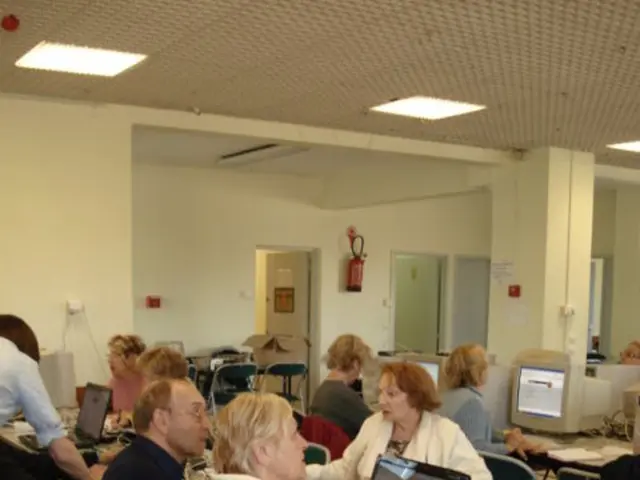Strategies for Navigating Romantic Partnerships with Someone Diagnosed with ADHD:
Navigating Romantic Relationships with ADHD: Strategies for Success
A diagnosis of ADHD, or attention-deficit/hyperactivity disorder, can present unique challenges in romantic relationships. Symptoms such as inattentiveness, distractibility, impulsivity, and forgetfulness can lead to friction and misunderstandings. However, with understanding, empathy, and strategic communication, couples can successfully navigate these challenges and foster a strong partnership.
The initial stages of a relationship may appear smooth, with the ADHD partner's undivided attention and spontaneous nature being particularly attractive. But as the honeymoon phase wanes, and the relationship settles into a more long-term dynamic, the ADHD symptoms can become more apparent, causing frustration and doubts about the relationship's longevity.
Untreated ADHD can increase the risk of marital conflicts and divorces, according to Dr. Mark Stein, a psychologist and professor of psychiatry in the UW School of Medicine's Department of Psychiatry and Behavioral Sciences. ADHD is more prevalent in adults than previously thought, affecting an estimated 11 million adults in the U.S., and the disorder is often undiagnosed, especially among those who weren't diagnosed in their childhood.
To transcend common challenges when living with ADHD, both partners can take several important steps.
- Understanding ADHD DynamicsGaining knowledge about ADHD can provide valuable insights into the disorder's effects on behavior. By recognizing common challenges and learning about the emotional reactivity and forgetfulness associated with ADHD, couples can foster understanding and prevent misunderstandings.
- Communication and Emotional ExpressionEffective communication is crucial for any relationship, but it becomes even more essential for those involving ADHD. Using open and direct communication, and clarifying emotional subtext can help ensure both partners understand each other's needs. Additionally, exploring the "Five Love Languages" can help couples understand how each partner expresses and receives affection.
- Establishing Routines and StructureEstablishing consistent routines reduces decision fatigue and conflict for both partners. A structured environment with clear expectations can help the ADHD partner stay organized and focused.
- Managing Conflict and Sensory NeedsDiscussing sensory preferences openly and respecting each other's coping strategies can help manage conflict and sensory overload. Developing a "safe exit plan" for intense moments can provide a refuge for the ADHD partner to regain composure.
- Support and EmpathyPositive reinforcement strategies can encourage the ADHD partner to exhibit desired behaviors, while empathy and understanding are essential for maintaining a supportive environment.
By implementing these strategies, couples can build a strong foundation for a successful and fulfilling relationship. ADHD does not have to be a relationship's downfall; with the right support and understanding, the partner with ADHD can thrive, and so can the relationship itself.
- In the context of relationships, comprehending the dynamics of ADHD can help prevent misunderstandings and foster greater understanding.
- Effective communication and emotional expression are vital for relationships with ADHD, as they help partners understand each other's needs and wants.
- Establishing routines and structure in a relationship can help manage the challenges that come with ADHD and create a more organized environment.
- In order to manage conflicts and sensory overload, it's important to discuss sensory preferences and develop coping strategies together that respect each partner's needs.
- A supportive environment that provides empathy, positive reinforcement, and understanding is essential for a successful and fulfilling relationship with ADHD.








